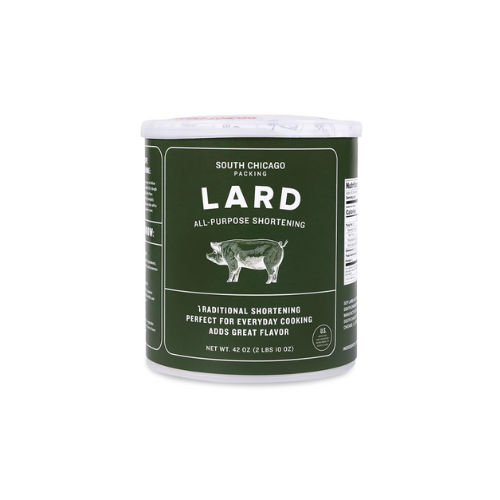Can You Eat Bratwurst on Carnivore Diet
Rules and Recommendations
The carnivore diet is a dietary regimen that includes exclusively animal products and eliminates all plant-based foods. This diet focuses on meat as the primary source of nutrition, leveraging the full spectrum of animal-derived foods like beef, pork, seafood, organ meats, eggs, and certain dairy products. The rationale behind this diet is rooted in the belief that human digestive systems are better suited to animal products and that many modern ailments are a result of a heavy plant-based and processed food diet.
Bratwurst, a type of sausage that is traditionally German and made primarily from pork, can find its place within the carnivore diet framework. While the carnivore diet is restrictive in its exclusion of plant-based foods, it does allow for a variety of meats, including processed options like bratwurst. However, when incorporating products such as bratwurst, which may contain spices and additives, it is important for individuals to consider the purity of ingredients and whether the product aligns with the diet's philosophy of consuming whole, minimally processed animal foods.
In discussing the carnivore diet's compatibility with bratwurst, one must also consider the diet's implications for health and nutrition. Proponents of the carnivore diet argue that such an approach offers all the necessary nutrients without the antinutrients found in plant-based foods. In the context of bratwurst, as long as the sausages are not filled with fillers or plant-derived substances, they are generally considered acceptable. Consumption should also align with a person’s nutritional needs and health goals, taking into account the diet's high protein and fat content, which may influence individual health outcomes.
Carnivore Diet Basics
In the exploration of dietary strategies, the carnivore diet is a protein-rich approach that centers around the consumption of exclusively animal products.
Defining the Carnivore Diet
The carnivore diet is described as an all-encompassing animal-based diet, where an individual consumes only foods derived from animals. This dietary pattern eliminates all plant-based foods, focusing on the intake of high levels of protein and fat from animal sources.
Primary Foods in a Carnivore Diet
Meat: This category includes all types of animal meats, such as beef, pork, and fish, which are staples of the carnivore diet. The emphasis is on choosing fatty cuts of meat to ensure adequate fat intake for energy.
Description of Animal Proteins
Beef
Description: Rich in protein, iron, and B vitamins
Pork
Description: Contains essential amino acids
Fish
Description: High in omega-3 fatty acids
Eggs and Dairy: Eggs are a complete protein source, providing all nine essential amino acids. Additionally, dairy products like cheeses and full-fat milk provide a source of fat and nutrients.
Eggs: A versatile component, often included for breakfast.
Dairy: Selected products like cheese contribute additional fat and flavor.
Through these food groups, the diet advocates for the consumption of essential nutrients, such as vitamins B12 and D, omega-3 fatty acids, iron, zinc, and complete proteins necessary for bodily functions.
Health and Nutritional Considerations
When incorporating bratwurst into a carnivore diet, one should consider its nutrient content, potential health benefits, as well as risks and concerns related to its consumption.
Nutrients and Vitamins
Bratwurst is a source of protein, essential for muscle maintenance and repair. It also contains vitamins such as Vitamin B12, crucial for nerve function and blood formation. While bratwurst does provide certain minerals like zinc and iron, it is also important to note the presence of saturated fats.
Take advantage of the wide variety of online options when shopping for vitamin B12, zinc, and iron!
Potential Health Benefits
The nutrients in bratwurst can contribute to overall health in various ways. For example, Vitamin B12 is essential for a healthy nervous system and metabolism, and the protein content supports muscle growth and maintenance. However, these benefits should be weighed against potential health risks.
Risks and Concerns
Despite its nutritional content, bratwurst is high in saturated fat and cholesterol, which may be of concern for heart health. The consumption of high amounts of saturated fat may be associated with an increased risk of heart disease and high blood pressure. Those with conditions like diabetes should also be vigilant about their bratwurst intake due to its potential to impact blood sugar levels. Moderation is key when incorporating bratwurst into one's diet.
Bratwurst on a Carnivore Diet
When considering bratwurst for a carnivore diet, one must examine both its compatibility with the diet's principles and the quality of the bratwurst being consumed.
Is Bratwurst Compatible?
Bratwurst, a type of sausage made primarily from pork, fits within the carnivore diet's focus on animal products. It is meat-based, which aligns with the diet's exclusion of plant-based foods. However, it is critical to consider the presence of spices and additives that are often used in bratwurst. While pure meat is encouraged on the diet, additives may not be acceptable if they originate from non-animal sources.
Buying the Right Bratwurst
When purchasing bratwurst for a carnivore diet, one should seek products with the fewest additives. It is advisable to check for:
Meat content: Ensure that it is high, preferably 100%.
Additives: Look for bratwurst with no fillers or plant-based ingredients.
Spices: Natural spices are commonly used, but one should ensure they're free of non-animal products.
Sodium levels: While sodium is necessary, excessively high amounts should be avoided.
Bratwurst can be a suitable option for those on a carnivore diet, assuming it consists purely of animal products—primarily pork—and is free from unwanted non-meat additives.
Customizing the Carnivore Diet
The carnivore diet can be modified to include a range of animal-based foods that cater to individual preferences and nutritional needs. Adapting meal plans and incorporating a variety of meats can promote a balanced approach within this dietary framework.
Incorporating Variety
While the carnivore diet primarily consists of meat, individuals can incorporate a variety of animal-based foods to add flavor and nutrients. High-quality red meats such as beef, lamb, and pork are staples, with bratwurst being a suitable option for those who enjoy sausages. Poultry like chicken and turkey also offers versatility to the diet.
One should consider including organ meats due to their high nutrient density; liver, for example, is a powerhouse of vitamins and minerals. Seafood provides essential omega-3 fatty acids, making fatty fish and shellfish valuable additions. Bone broth can be a comforting and mineral-rich drink. Here's a list to summarize:
Red Meat: Beef, lamb, pork, and yes, bratwurst
Poultry: Chicken, turkey, and duck
Organ Meats: Liver, kidney, and heart
Seafood: Salmon, mackerel, and oysters
Other: Bone broth as a nutrient-rich beverage
Meal Planning and Prep
Those on the carnivore diet should plan their meals to ensure dietary variety and nutritional adequacy. A meal plan for a typical day might include:
Breakfast: Scrambled eggs with diced ham and shredded cheese
Lunch: Grilled salmon seasoned with salt and pepper
Dinner: Sirloin steak with a side of liver cooked in butter
Meal preparation is straightforward. Meats can be grilled, roasted, or pan-fried, and organ meats are best consumed fresh for optimal nutrients. Seafood should be sourced sustainably and cooked to preserve its delicate flavors. Cook in bulk where possible to streamline meal preparation and maintain consistency in one's diet.
Beyond Meat: Additional Animal Sourced Foods
In the context of the carnivore diet, one can expand their food selection to include not just meat, but also select animal-sourced products such as dairy and eggs, which offer additional nutritional benefits.
Dairy and Eggs in Moderation
One may incorporate dairy and eggs into the carnivore diet to achieve a well-rounded intake of nutrients. These foods provide high-quality protein and essential fats. For instance:
Butter: A rich source of saturated fat and contains butyrate, beneficial for gut health.
Cheese: Offers both protein and fat, along with important vitamins and minerals.
Heavy cream: Used sparingly, can add density and calories to a diet focused on high fat intake.
Eggs: They are incredibly nutrient-dense, containing crucial vitamins and minerals, along with choline, which is vital for liver function.
These items, when sourced from animals raised with good welfare and feeding practices, not only support the dietary principles of the carnivore diet but also its emphasis on food quality.
The Role of Fats and Oils
The carnivore diet places a significant emphasis on fats, both for their caloric density and nutritional content. Fats provide energy and help in the absorption of fat-soluble vitamins. In the context of the carnivore diet, one usually focuses on fat from animal sources, such as:
Saturated fats: Found in animal products and are a mainstay of the carnivore diet.
Animal fats: Such as lard or tallow, can be a primary cooking medium and are considered more preferable than plant-based oils.
Using animal fats for cooking ties in with the carnivore diet's preference for animal-based products and their whole food nutrients. They support the diet's macronutrient needs and can be a more suitable option compared to plant-derived oils.
Enjoy the convenience of doorstep delivery when you buy lard or tallow online!
Alignment with Other Low-Carb Diets
The carnivore diet's compatibility with other low-carb diets lies in its foundational principle of minimizing carbohydrate intake. This shared characteristic fosters a symbiotic relationship, particularly with the ketogenic diet.
Similarities with Ketogenic Diet
The ketogenic diet and the carnivore diet both restrict carbohydrates to induce a metabolic state known as ketosis, where the body burns fat for fuel. Bratwurst, being an animal product, fits within the low-carb framework of both diets, provided it contains no carbohydrate-rich fillers or additives.
Key Component Comparison: Ketogenic Diet vs. Carnivore Diet
Carbohydrates
Ketogenic Diet: Low (~5-10%)
Carnivore Diet: Near zero
Fats
Ketogenic Diet: High
Carnivore Diet: Variable
Proteins
Ketogenic Diet: Moderate
Carnivore Diet: High
A significant similarity is the elimination of sugars and grains, which can make it easy for individuals to transition between these two diets or combine their principles.
From Zero-Carb to Keto
While the carnivore diet can be considered a zero-carb diet, as it typically excludes all plant-based foods, the ketogenic diet allows for a small amount of carbohydrates. This distinction enables the carnivore diet to align with a stricter form of the ketogenic diet, often targeted by those seeking to stay in a consistent state of ketosis.
Bratwurst consumption on the carnivore diet is acceptable; however, one must ensure it aligns with the same low-carb principles when incorporated into a ketogenic regimen. They must check the ingredients for carbs, enforcing strict adherence to the diet's low-carb mandate.
Practical Considerations
When incorporating bratwurst into a carnivore diet, individuals should consider the impact on their grocery budget and social engagements. Selecting high-quality meats and understanding dining options outside the home are crucial.
Managing Grocery Budget
One's grocery budget may see an increase when following a carnivore diet that includes premium meats like bratwurst, game meats, bison, venison, as well as steaks and chops. To manage this effectively, they should consider the following strategies:
Buy in Bulk: Purchasing meats like bratwurst in larger quantities can offer cost savings. One might look for bulk deals at local butchers or warehouse stores.
Choose Cost-Effective Cuts: While steaks and chops are popular, they can also select more economical cuts such as bison or venison, which provide similar nutritional benefits.
Seasonal Game Meats: Prices for game meats can vary by season. They should watch for price drops during hunting seasons for meats like venison.
Eating Out and Social Events
The carnivore diet's restrictive nature can present challenges during social events or while eating out. Patrons looking to adhere to their diet can take steps to mitigate this:
Restaurant Choices: Select restaurants known for their meat selections, such as steakhouses, where they can order bratwurst, steaks, or chops without sides.
Communicate Dietary Preferences: When invited to social events, they should inform hosts of dietary restrictions to ensure that suitable options like game meats or other animal-based items are available.
Simplify Orders: When dining out, request meals that fit the carnivore diet by asking for simple preparations of meat, such as grilled or roasted, without sauces or marinades that may contain plant-based ingredients.
Expert Advice and Research
In evaluating whether bratwurst is suitable for a carnivore diet, insights from dietary experts and scientific studies offer a clear perspective on this dietary choice's compatibility and potential health implications.
What Experts Say
Experts like Dr. Shawn Baker, a proponent of the carnivore diet, promote the consumption of meat-based products, including bratwurst, as part of this dietary regimen. Registered dietitians often emphasize the importance of nutritional balance, suggesting that while bratwurst can be included, one should ensure intake of various meats, including muscle meats and organ meats. This diversity is critical for providing the different nutrients that the body requires.
Scientific Research on Carnivore Diet
Scientific research on the carnivore diet is limited, but existing studies focus on its short-term health benefits such as weight loss and improved blood glucose levels. However, researchers call attention to the long-term health implications due to the exclusion of plant-based nutrients. While research does not specifically target bratwurst, it suggests that in the context of an animal-based diet, quality and variety are necessary for obtaining a full nutrient profile.











